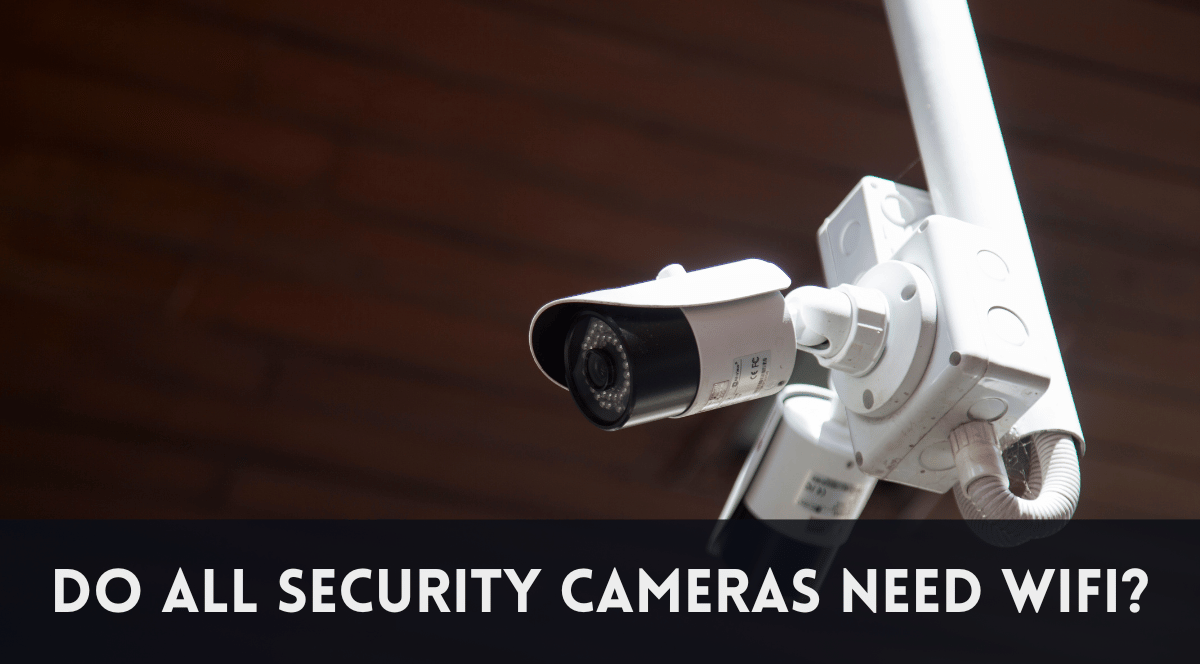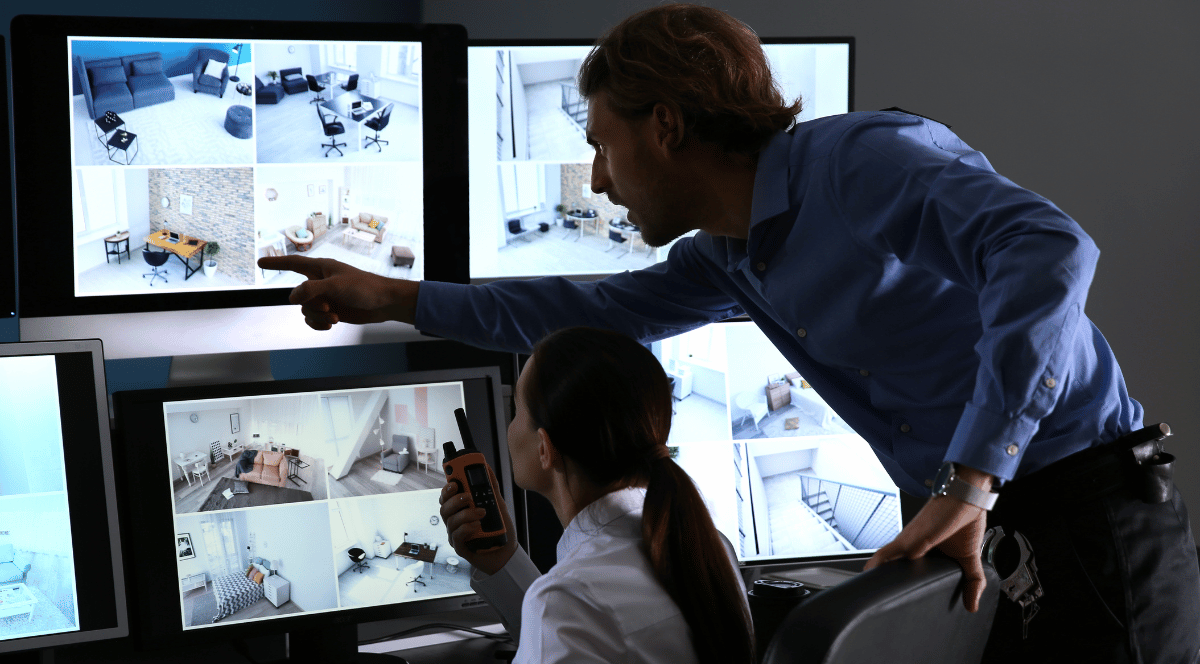 Do All Security Cameras Need WiFi?
Do All Security Cameras Need WiFi?
In today’s fast-moving, security-conscious world, the use of surveillance systems has gone from being a niche investment to a widespread necessity. Whether you’re protecting a business asset, safeguarding government facilities, or monitoring private property, security cameras are a frontline defense tool.
But here’s a common question many clients ask us at Oatridge Security Group: do all security cameras need wifi? The answer is no—not all systems require an internet connection to operate effectively. While WiFi adds convenience, advanced features, and smart integrations, some systems work just as well without it. In this comprehensive blog, we’ll walk you through how different types of cameras work, the pros and cons of internet-free setups, and how to determine the best option for your environment.
How Security Cameras Work: A Quick Overview
Understanding the core function of a security camera starts with how it powers up and transmits data.
Power Source Options:
- Wired cameras: Plugged into an electrical outlet or hardwired to a central power supply. These provide continuous power and are often ideal for permanent installations.
- Battery-powered cameras: Operate independently and are often used in locations without power infrastructure. Batteries must be recharged or replaced periodically.
- Solar-powered cameras: Use solar panels to charge built-in batteries, suitable for long-term use in remote or outdoor settings.
Data Transmission Methods:
- WiFi: Most common in residential or smart commercial setups. Allows real-time streaming and remote access.
- Ethernet (PoE): Power over Ethernet delivers both data and electricity through a single cable—known for high reliability.
- Cellular Networks: Uses 4G/5G signals for video transmission. Ideal for isolated or mobile locations.
- Local Storage: SD cards or hard drives store footage internally without transmitting it off-site.
Recording vs Streaming:
- Recording captures video footage for storage and later review.
- Streaming allows you to view live video feeds remotely, often requiring an internet connection.
Types of Security Cameras Based on Connectivity
Each type of camera connectivity is designed for specific security needs and locations.
WiFi Cameras
WiFi security cameras connect to your wireless network to transmit footage. These are widely used for their ease of setup, remote access, and integration with smart home systems. Users can watch live footage, receive motion alerts, and store video in the cloud.
If you’re wondering, do all security cameras need wifi to function like this—definitely not, especially in offline applications.
Cellular (4G/5G) Cameras
These cameras operate on mobile networks, sending data over a 4G or 5G LTE connection. They’re ideal for off-grid areas such as job sites, rural land, or temporary setups. All they require is power and a data plan. Again, if you ask, do all security cameras need wifi—these clearly don’t.
Local Storage Cameras (SD Card, DVR, NVR)
Instead of transmitting data wirelessly, these cameras record video onto local storage devices. DVRs (Digital Video Recorders) and NVRs (Network Video Recorders) are often connected to multiple cameras, while standalone units use SD cards. It proves you can operate successfully without asking, do all security cameras need wifi?
PoE (Power over Ethernet) Cameras
PoE cameras are connected through Ethernet cables, which carry both power and data. These are highly reliable and are typically used in commercial settings or government installations where consistent uptime is essential.
Do Wireless Security Cameras Always Need Internet?
Not necessarily. The term “wireless” often refers to how the camera transmits data, not how it connects to power or the internet.
- Wireless cameras use WiFi to send footage, but might still need power from a plug.
- Wire-free cameras operate completely without cables. Usually battery-powered and can either use WiFi or store footage locally.
So when we ask, do all security cameras need wifi—especially wireless ones—the answer is no. Many wireless models can record locally and operate independently of the internet.
4. Cameras That Work Without WiFi
You don’t need a WiFi network to operate effective surveillance. Here are options that work just fine without it:
- SD card cameras capture and store footage on an internal memory card. Perfect for low-traffic or indoor areas where internet isn’t necessary.
- 4G LTE cellular cameras use mobile data networks to transmit footage. Offer remote access without relying on traditional WiFi.
- NVR and DVR systems are ideal for comprehensive multi-camera setups that don’t need online features. Footage is stored on local hard drives.
- Battery-powered cameras operate autonomously and can be used in off-grid areas. When paired with SD storage, they function without any data connection.
- PoE IP cameras are often set up on closed LAN systems for high-security areas. No internet access required—just local monitoring.
Each of these is a clear example answering no to the question: do all security cameras need wifi?
Pros and Cons of Security Cameras Without WiFi
Advantages:
- Not vulnerable to hacking through the internet.
- No bandwidth consumption from streaming video.
- Continuous operation during WiFi or internet outages.
- No cloud service or subscription costs.
Limitations:
- No live video access from your phone.
- No smart alerts or AI detection features.
- Risk of losing physical storage if devices are stolen.
- Cannot be integrated into DIY smart home ecosystems.
Despite the drawbacks, many people choose this route, which further answers: do all security cameras need wifi? Clearly not.
Real-World Use Cases for Non-WiFi Security Cameras
These setups are common in a variety of environments where traditional connectivity is unavailable or unnecessary:
- Farms, barns, and open land.
- Construction sites requiring temporary systems.
- Boats, RVs, and mobile surveillance environments.
- Off-grid cabins and storage facilities.
- Backup systems that support a wired security system.
Each scenario confirms that the answer to do all security cameras need wifi depends on the setting—and often, it’s no.
How to Set Up a Security Camera Without WiFi
While setup steps may vary by model, the following methods apply to most non-WiFi installations:
- Insert a micro SD card and configure local storage.
- Use Ethernet or LAN cables for PoE security cameras.
- Connect via UTP cable to view footage on a computer.
- Use a temporary mobile hotspot for initial camera setup.
- Power options include rechargeable batteries, solar panels, or portable generators.
Following these steps means you’re already ahead on the question: do all security cameras need wifi to be effective? Absolutely not.
When You Do Need WiFi for Security Cameras
There are scenarios where WiFi enhances functionality significantly:
- Viewing footage from a phone app while away from the site.
- Backing up recordings to the cloud.
- Receiving motion-triggered push notifications.
- Linking the camera with a home security system or smart assistant.
In these cases, answering yes to do all security cameras need wifi makes sense—but only when remote access is essential.
WiFi vs Non-WiFi Security Cameras: Comparison Table
| Feature | WiFi Cameras | Non-WiFi Cameras |
|---|---|---|
| Remote Viewing | Yes | No |
| Smart Features (AI, voice) | Yes | No |
| Storage Type | Cloud or Local | Local only |
| Internet Dependence | High | None or Low |
| Cybersecurity Risk | Moderate | Low |
| Installation Ease | High | Moderate |
| Monthly Fees | Sometimes | Rare |
| Ideal Use | Smart homes, offices | Remote/secure areas |
Choosing the Right Camera Setup for Your Needs
Selecting the right surveillance system depends on a few critical considerations:
- Indoor vs outdoor placement.
- Availability of power supply.
- Desired access via phone or PC.
- Presence or absence of reliable internet.
At Oatridge Security Group, we help you evaluate these factors and answer honestly: do all security cameras need wifi in your case? We’ll help you find out.
 Why Oatridge Security Group is Your Go-To for WiFi and Non-WiFi Camera Solutions
Why Oatridge Security Group is Your Go-To for WiFi and Non-WiFi Camera Solutions
At Oatridge Security Group (OSG), we pride ourselves on delivering tailored security camera systems—both online and offline—that address your specific risk environment.
From cleared government facilities to commercial properties and industrial zones, our experience and insight allow us to deploy the right technology with precision. Our approach isn’t just about installation—it’s about strategy, compatibility, and long-term performance.
Our solutions are engineered to function without compromise—whether you’re in the heart of the city or the edge of the wilderness. And if you’re unsure whether your space calls for a WiFi-enabled system or not, we’re here to guide you. We help you answer the essential question: do all security cameras need wifi for your needs?
Contact Oatridge Security Group
Oatridge Security Group (OSG) is a HUBZone certified business located in Tacoma, Washington. We specialize in cleared protective services designed to meet and exceed the stringent requirements of both commercial and government clients. Every system and service we provide aligns with specific agency regulations and mission-critical needs.
With over 20 years of operational history and a leadership team combining 100+ years of industry expertise, we’ve earned our place as a security industry leader throughout the Pacific Northwest and beyond.
Security doesn’t keep business hours—and neither do we. We provide 24/7 communication and rapid deployment support because threats don’t wait, and neither should your response team.
Phone: (253) 461-1622


